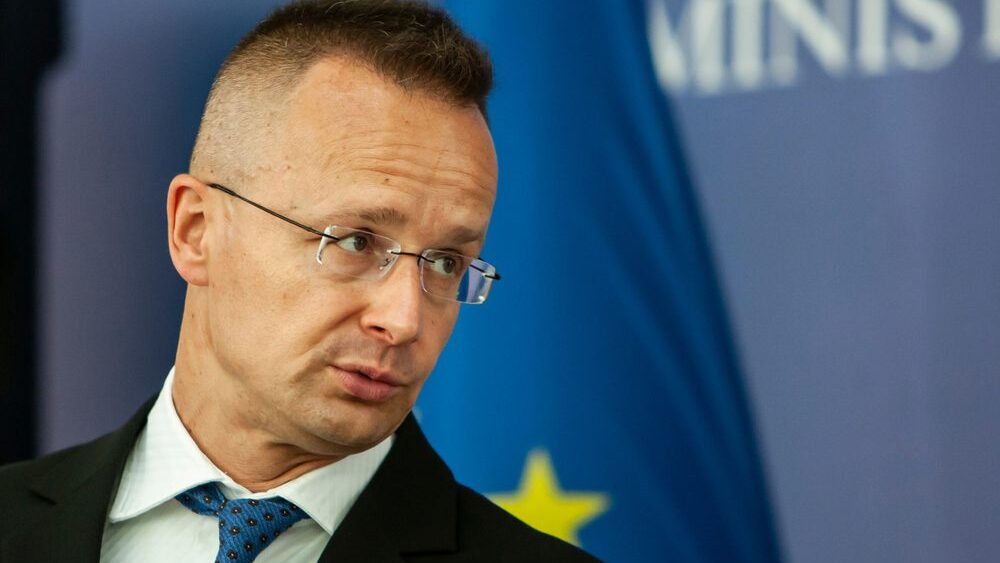
Hungarian Foreign Minister Péter Szijjártó
Photo: Victor Mogyldea / Shutterstock.com
“There is still a war psychosis in the minds of many of my colleagues,” Hungarian Foreign Minister Péter Szijjártó said in reply to a question by The European Conservative at the minister’s press conference in Brussels on Monday, November 13th. Ukraine was once again on the agenda of the Foreign Affairs Council, and despite media reports that U.S. and European officials have begun talking to the Ukrainian government about possible peace negotiations to end the war with Russia, Szijjártó says there is no change whatsoever in the war rhetoric that has been characteristic of many EU member states.
Indeed, Germany’s Foreign Minister Annalena Baerbock announced on Monday that her country’s military support for Ukraine “will be massively expanded for next year.” The government wants to increase its aid for 2024 from the €4 billion initially planned to €8 billion. Germany has become one of Ukraine’s top military suppliers since the war started last February, sending material that includes tanks, armoured personnel carriers, air defence systems, and Patriot missile systems. Josep Borrell, High Representative of the EU for Foreign Affairs, also stressed on Monday that, “we continue being behind Ukraine,” and that the EU’s military support has reached €27 billion.
The war in Ukraine is slowly entering its twenty-second month, but according to most experts, it has reached a stalemate; the frontlines are hardly moving. According to Szijjártó, the EU should first look at whether the billions of euros spent on Ukraine and the sanctions on Russia have yielded any results before it decides to spend even more money. The minister believes the EU’s aid has resulted in only more deaths and more destruction—“we are no closer to achieving peace” —and that, with the sanctions, the EU “has shot itself—at the very least—in the foot.”
Hungary has been the only EU member state not to give military assistance to Ukraine, and has for months been blocking the disbursement of the €500 million worth of military aid to Ukraine under the so-called European Peace Facility until it gets guarantees from Kyiv that OTP Bank or other Hungarian firms will not be blacklisted as “international sponsors of war.”
Hungary is also opposing negotiations to start Ukraine’s EU accession, as proposed by the European Commission last week. Szijjártó stressed that Ukraine is far away from fulfilling the criteria demanded by the EU, especially with regard to the protection of its ethnic minorities, including that of the Hungarian community. Ukraine has restricted the use of ethnic languages in ethnic minority schools and the media, and also cultural and public institutions in communities where minorities form a majority of the local population. Szijjártó said that the Hungarian minorities’ situation in Ukraine is constantly worsening.
Hungary has found an ally in neighbouring Slovakia with regard to the war in Ukraine. According to the new leftist-nationalist government’s programme, announced on Monday, Slovakia will halt official military aid to Ukraine and seek a cessation of hostilities. The government will only support sanctions if they are in the interests of the country’s citizens and their well-being. The programme vows to put “Slovakia first”, and—also in line with Hungary’s stance—reiterates the government’s opposition to an end of national veto rights of EU member states or a move towards majority voting in more areas.
